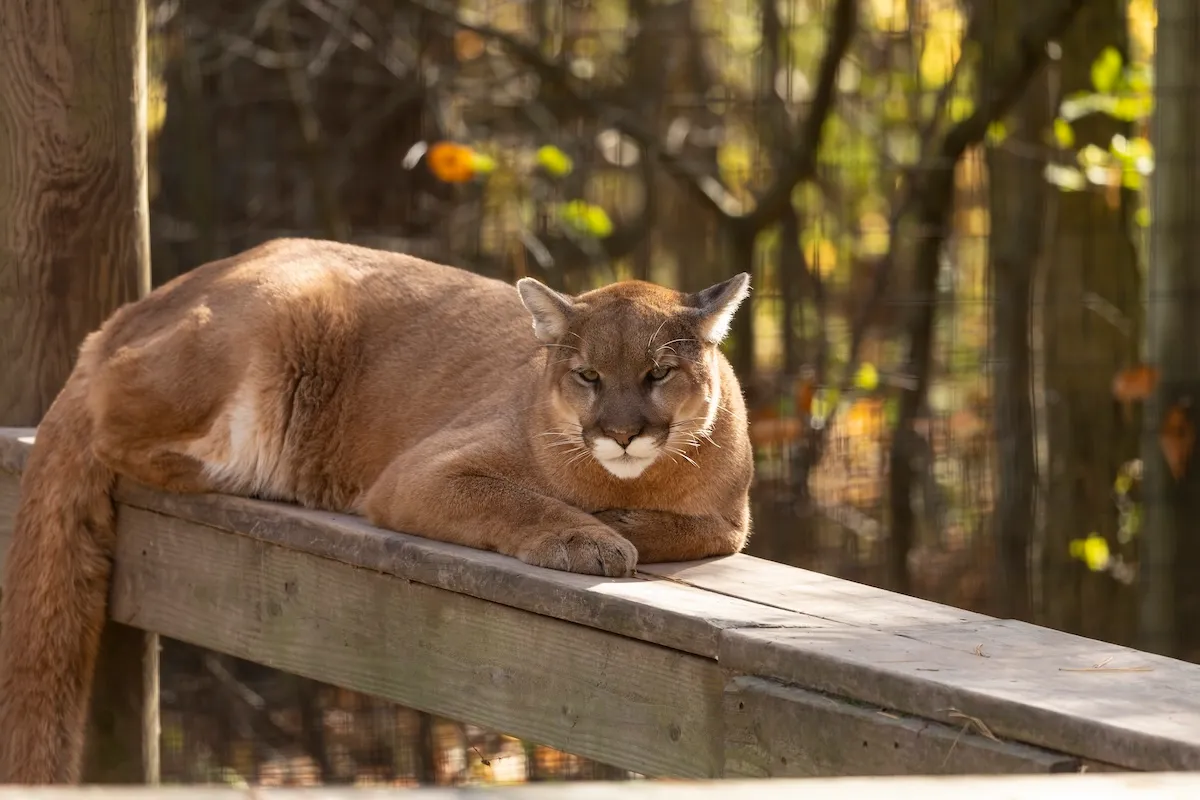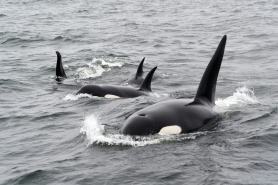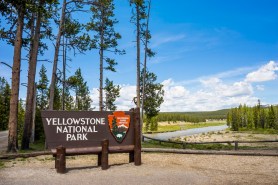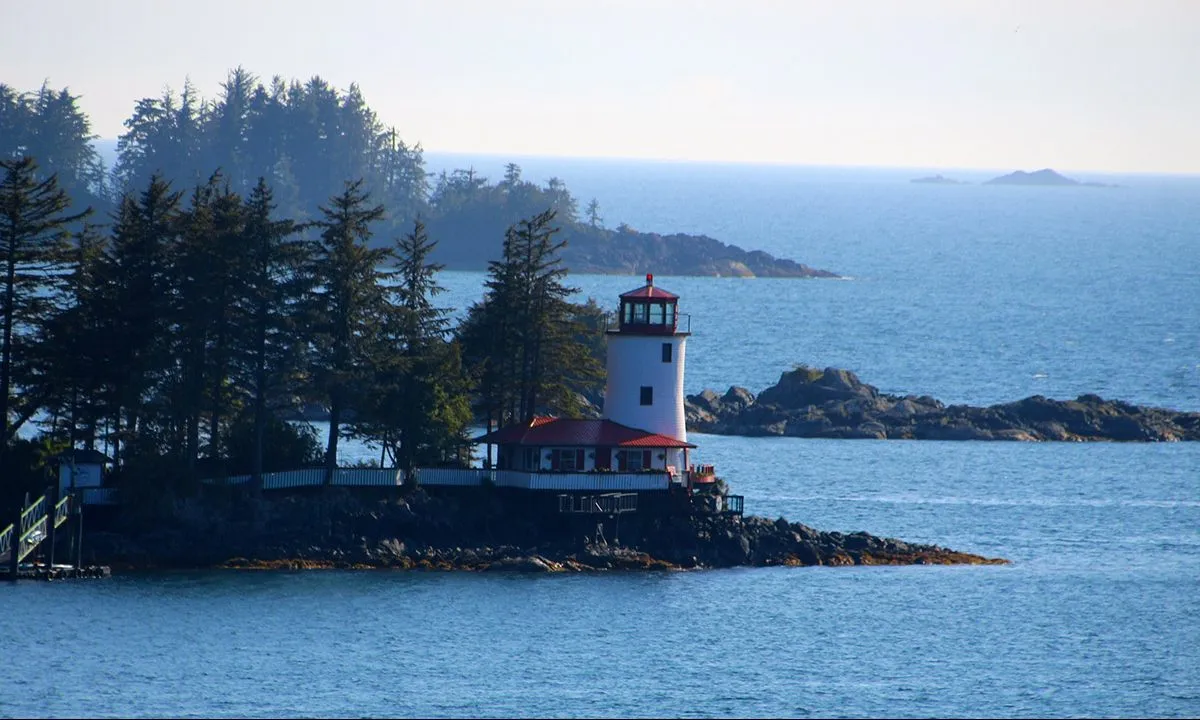

In 1989, the U.S. Congress declared August 7 National Lighthouse Day, in honor of the U.S. Lighthouse Service‘s 200th anniversary. These beacons of light have long warned sailors of rocks, reefs, and other hazards, served as location markers, and helped mariners find their way to safety.
Videos by Outdoors
While modern technology now largely guides most mariners, many lighthouses are still in use, and many more are preserved as historic structures. This National Lighthouse Day, celebrate by dreaming of (and maybe planning a visit to) some incredible lighthouses in the U.S. and Canada.
Admiralty Head Lighthouse – Fort Casey Historical State Park, Washington
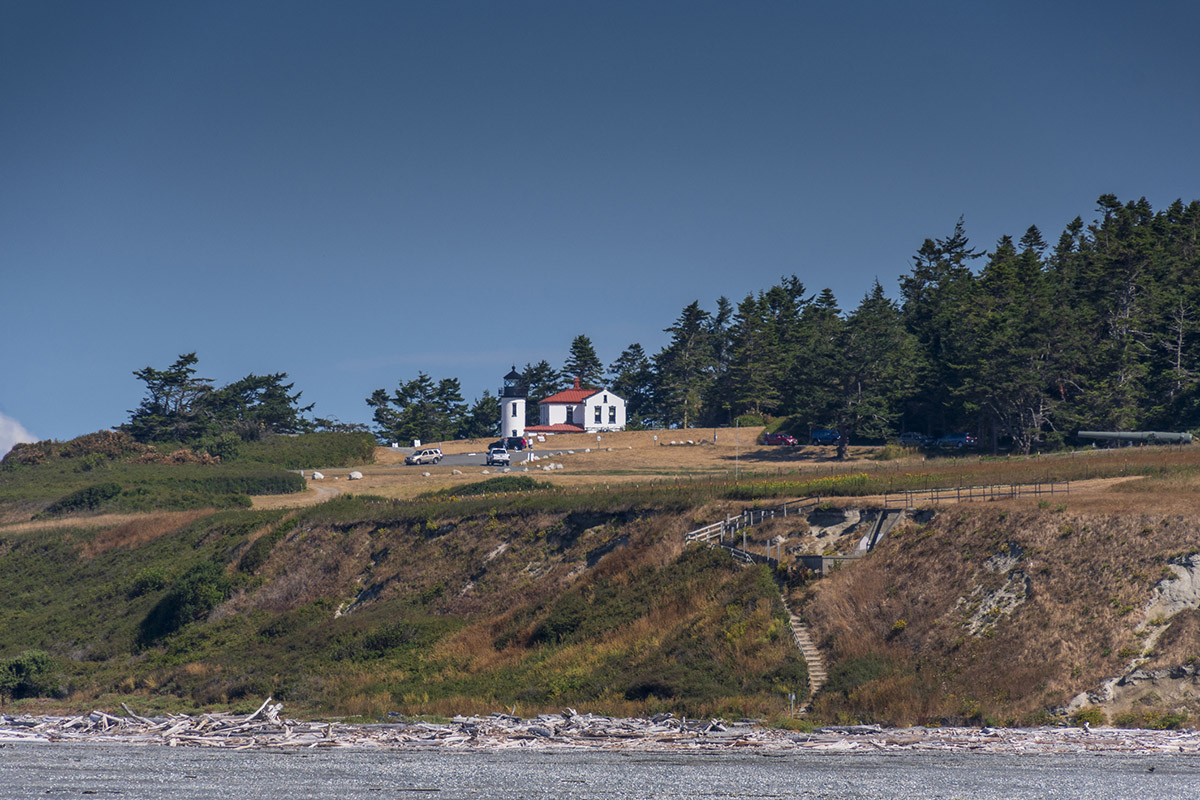
In Fort Casey Historical State Park near Coupeville, Washington, Admiralty Head Lighthouse served as a beacon for sailors from the early 1860s when the original wooden lighthouse was constructed. The current 30-foot-tall brick-and-stucco structure on the site was completed in 1903 and designed by Carl Leick, though it was deactivated in 1922.
The lighthouse is open to visitors seasonally, with docents on hand to share information. Climb the spiral stairs to the top and see incredible views of Puget Sound and more, and be sure to enjoy hiking and other activities at the state park. Admiralty Head Lighthouse is having a special National Lighthouse Day Celebration this year, including music and presentations about lighthouse keepers over the years.
Piedras Blancas Light Station – California’s Central Coast
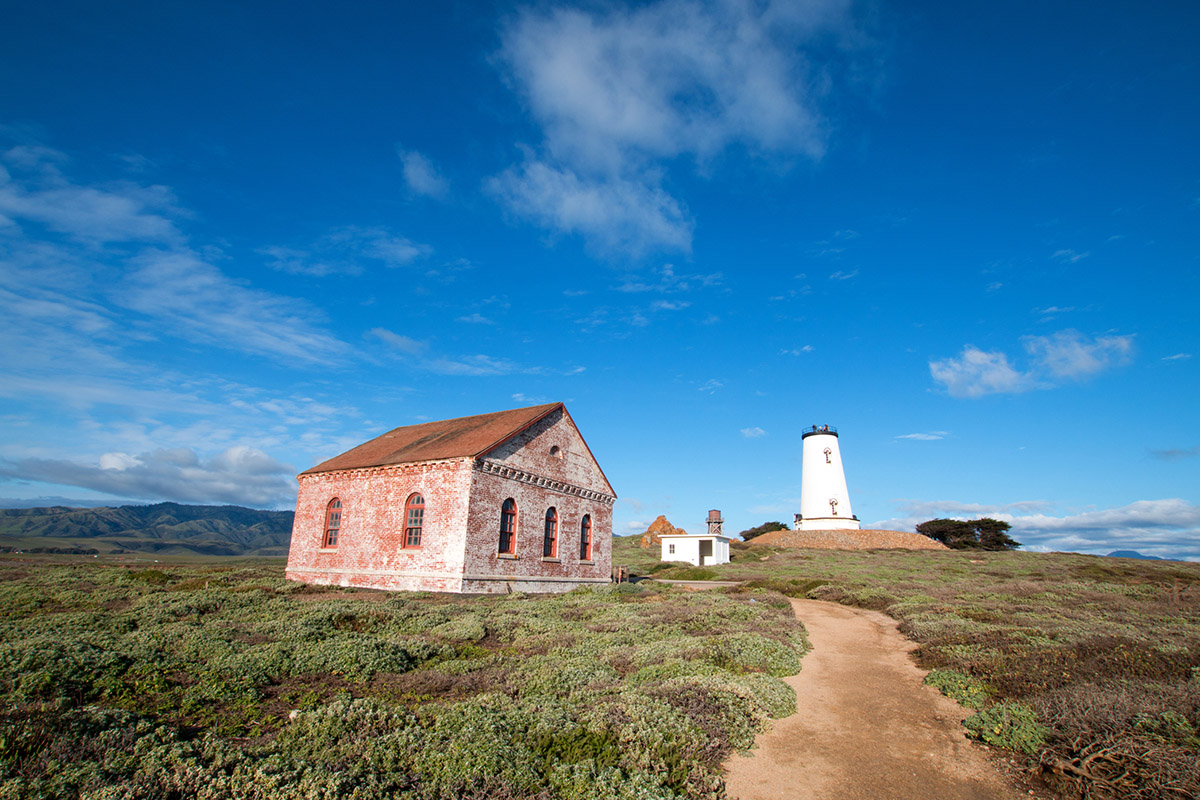
Along California’s Central Coast, the Piedras Blancas Light Station first became a light station in 1874, and it still functions as an automated light station today. It is part of Piedras Blancas Light Station Outstanding Natural Area and the California Coastal National Monument, and it is on the National Register of Historic Places.
Located just 6 miles from Hearst Castle along California’s famous Highway 1, the light station is named for the white rocks located just offshore. The 19 acres of land around it are home to more than 70 native plant species, plus elephant seals, seabirds, and sea lions are all in the area, which is also used as a research location for scientists.
Make an advanced reservation for a tour (be sure to check the tour schedule) or hop online for a virtual tour.
West Quoddy Head Light – Maine
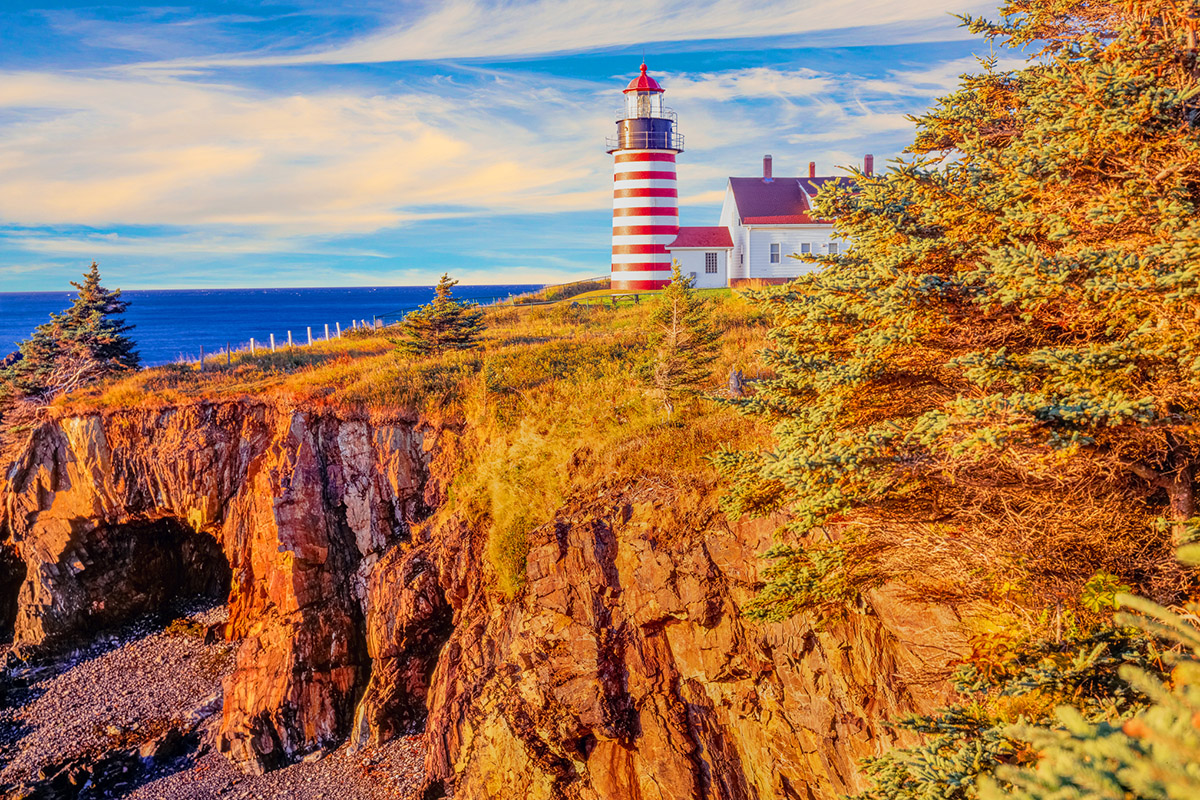
Maine has 3,478 miles of coastline and a wide array of lighthouses to visit. West Quoddy Head Light has horizontal red-and-white stripes and is located on the contiguous U.S.’ easternmost point.
Originally built in 1808, it’s been reconstructed a couple times over the years. It sits over the Quoddy Narrows and is accessible by road. While visitors cannot enter the lighthouse itself, there is a visitor’s center and museum on site, located in the 1858 Light Keepers’ house, and there are also grounds to explore.
Sitka Lighthouse – Alaska
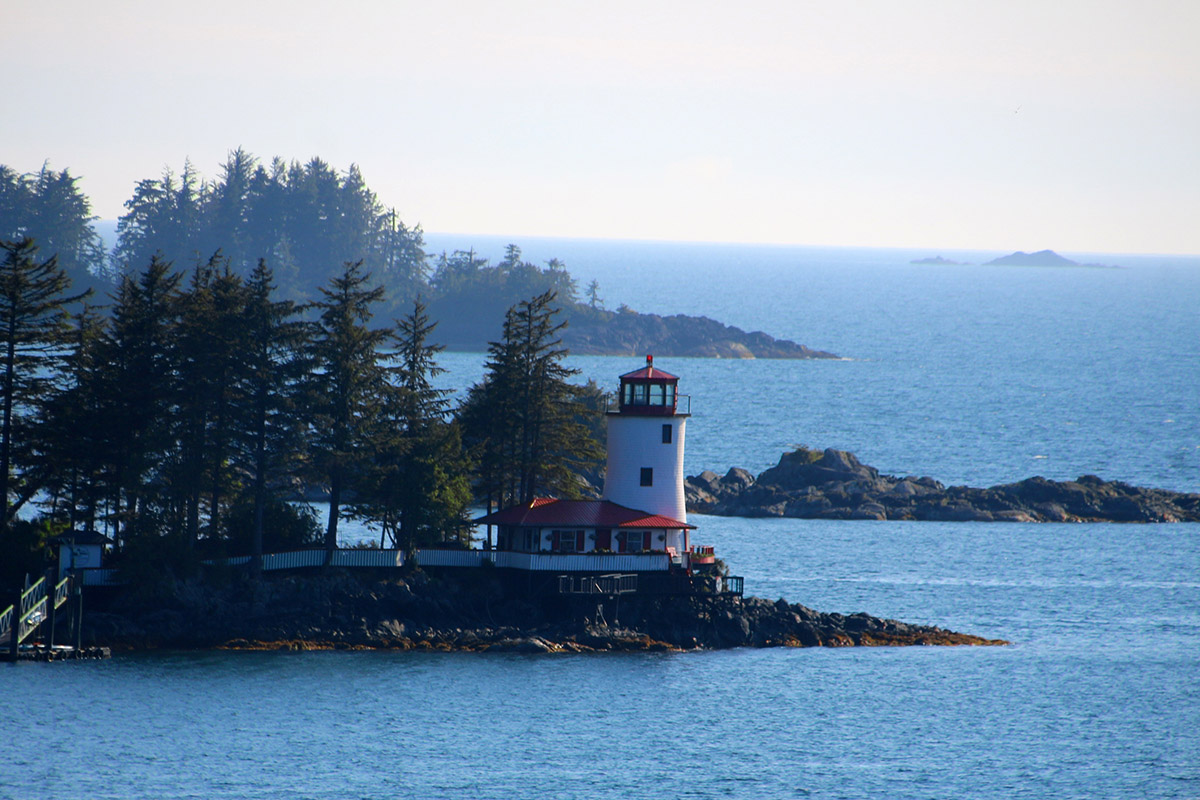
Alaska’s Sitka Lighthouse is a working lighthouse that is available for overnight rentals. Don’t worry—the light is automatic, and you don’t need to do anything to operate it; you can just enjoy the incredible location on Rockwell Island.
Wildlife like whales, otters, sea lions, tidal creatures, and an array of birds are often spotted in the area, and amenities like kayaks, a hot tub, and BBQ provide plenty of good times at the lighthouse, which sleeps six.
A quick water taxi ride will bring you to the 1-acre private island. Built in 1983, the lighthouse has long served as both a Coast Guard registered navigational beacon and a vacation rental, with an update in 2018.
Cape Hatteras National Seashore – North Carolina
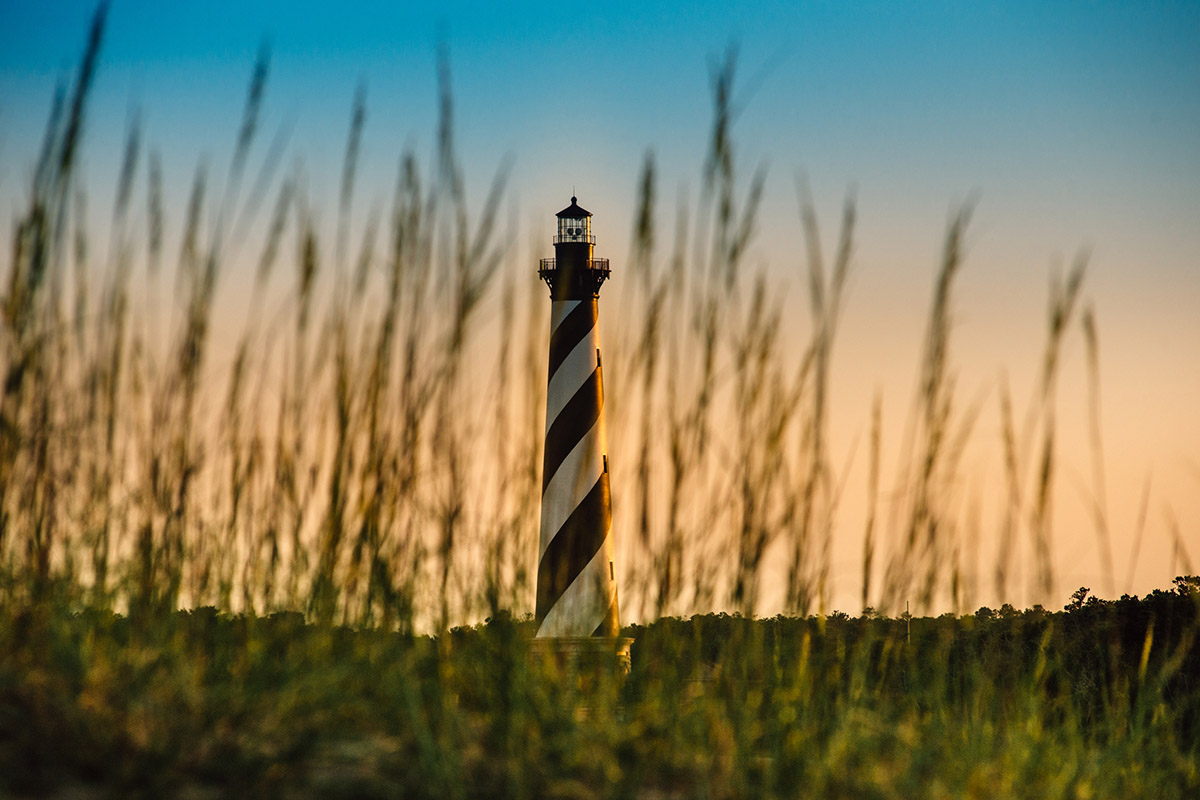
Cape Hatteras National Seashore is home to three historic lighthouses, including Ocracoke Lighthouse and Cape Hatteras Lighthouse. The Ocracoke Lighthouse is on the seashore’s southern end and is celebrating its bicentennial this year. It is one of the oldest operating lighthouses in the U.S., at approximately 75 feet tall with a beam visible up to 14 miles away.
It is solid white, so mariners could identify it during daylight. Visitors can see the base of the lighthouse seasonally but cannot climb it. It is still in use, though it is automated now. Virtual tours are also available.
The famous Cape Hatteras Lighthouse (sometimes dubbed “America’s lighthouse”) protects mariners along a very hazardous section of coastline. It was first lit in 1803 with a whale oil lamp, but it was just 90 feet tall and not effective enough for the dangerous shoreline.
The lighthouse was increased to 150 feet and painted red and white, but then in 1870, a new lighthouse was built (and the old one removed). The new lighthouse’s distinctive black-and-white spiral stripes were added in 1873. In 1999, it was relocated due to an eroding shoreline and moved 2,900 feet over a 23-day-long process. It is now 198 feet tall (including lightning rod), with 269 steps to the top. It is not open for climbing this year, but a virtual tour is available.
Boca Chita Lighthouse – Biscayne National Park, Florida
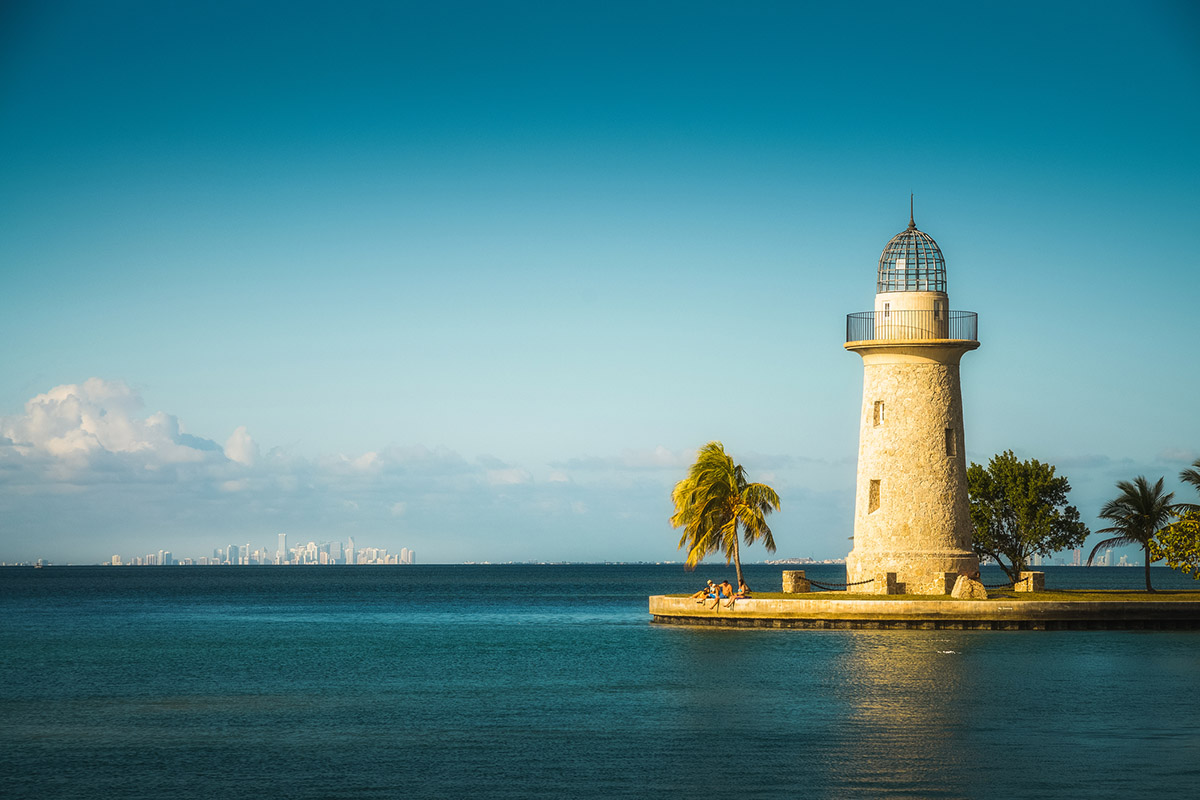
Boca Chita Key is home to the iconic white Boca Chita Lighthouse. It is a historic landmark built in the 1930s by Mark Honeywell and part of Biscayne National Park. Visit the lighthouse to check out the observation deck with gorgeous views of the ocean and Miami skyline.
Enjoy camping on the island, picnicking, or boating nearby, and there is also a half-mile hiking trail. Be aware the lighthouse is on an island that does not have drinking water, electricity, or concessions, so plan ahead and bring what you will need.
Amphitrite Lighthouse – Vancouver Island, British Columbia
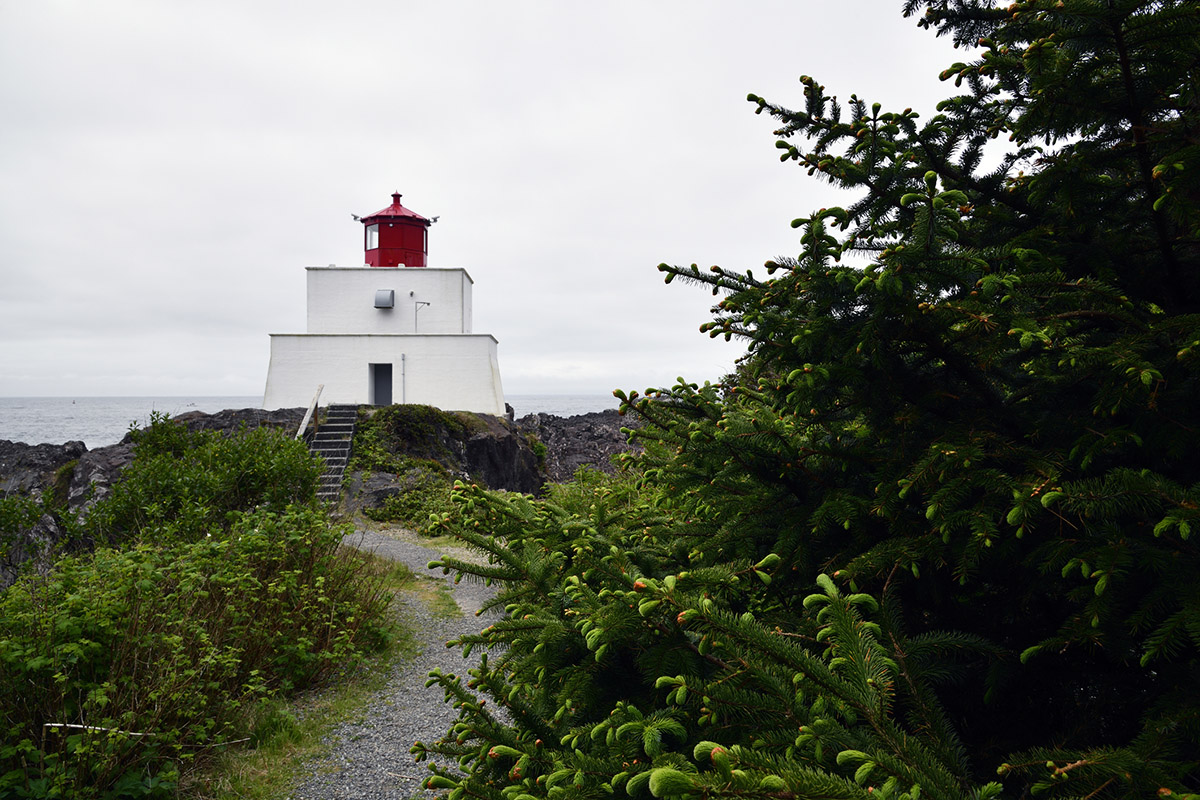
The Amphitrite Lighthouse was originally built in 1906 after a shipwreck nearby, and it is now located along the Wild Pacific Trail. Hike the lighthouse loop or drive to the lighthouse, located at Ucluelet on Vancouver Island. The original lighthouse was replaced in 1915. Enjoy the BOG Interpretive Trail Loop along the way and enjoy great views of Barkley Sound, the Broken Group Islands, and watch for wildlife like whales and seabirds.
Point Betsie Lighthouse – Frankfort, Michigan
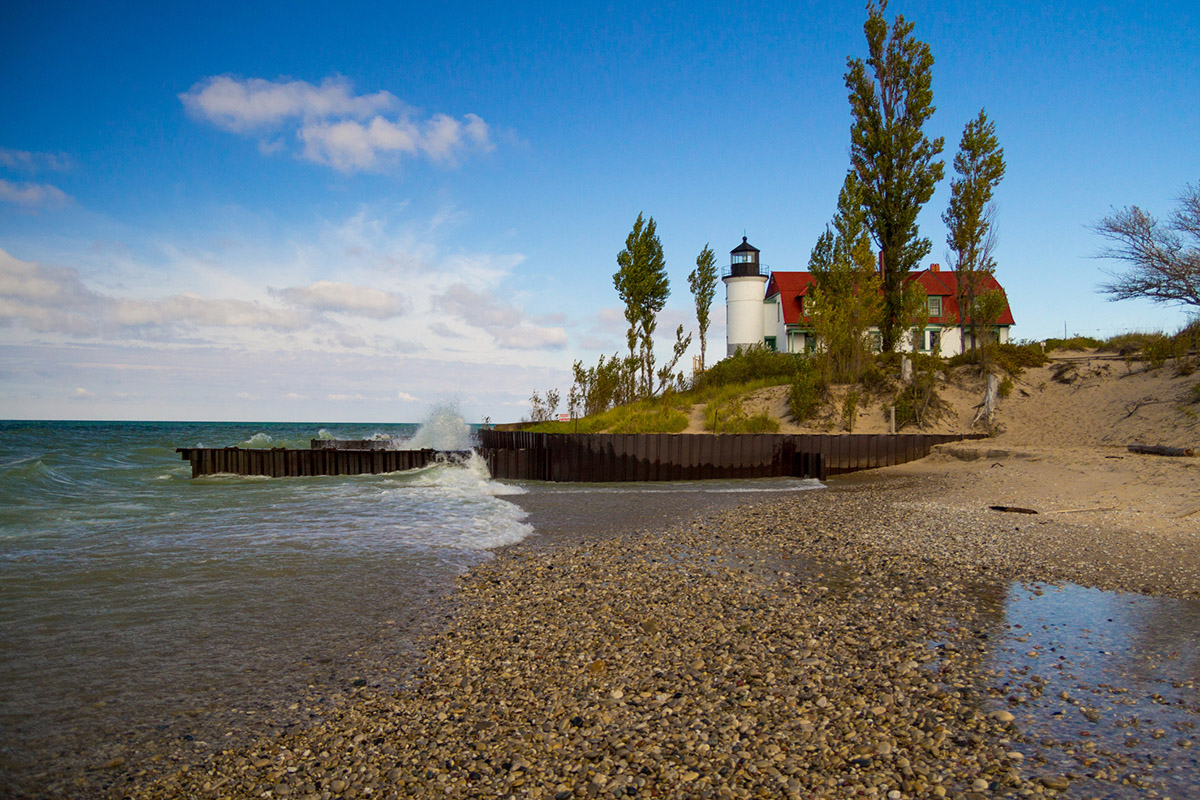
One of the Great Lakes’ oldest operating lighthouses, Point Betsie, is near Frankfort, Michigan. It was constructed in 1858 over Lake Michigan. It is now fully automated and still in use. The lighthouse is open seasonally, with exhibits nearby, and you can even book a night at the lighthouse in the Keeper’s Quarters.

